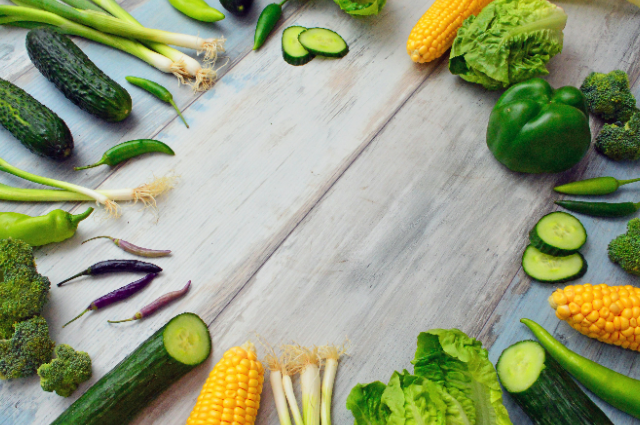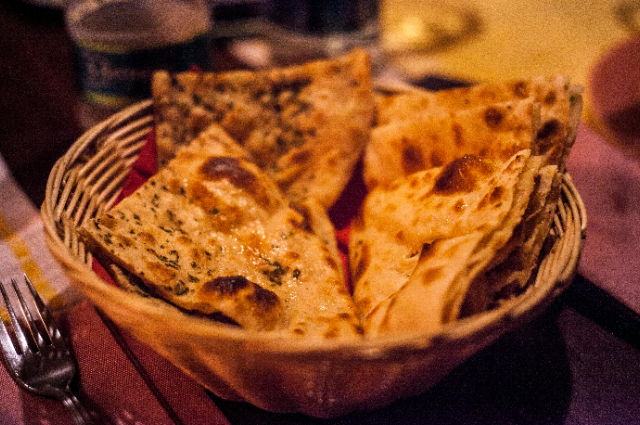
According to the United Nations Food Waste Index report, India wastes approximately 78.2 million tonnes of food annually; that's enough to feed the state of Bihar for an entire year!
The financial cost of this waste?
A staggering ₹92,000 crores. But the real cost goes beyond money – it's a drain on our natural resources and a contributor to climate change.
In a world where resources are becoming increasingly scarce, the concept of a zero-waste kitchen is not just a trend – it's a necessity.
India, a land blessed with abundant resources, faces a paradoxical challenge: despite its rich culinary heritage and agricultural bounty, it grapples with significant food waste issues.
But fear not! With a few creative ideas and a dash of determination, we can transform our kitchens into sustainable havens. Let's embark on this eco-friendly journey together and explore how we can make our kitchens truly zero-waste.
Why Should We Care About Food Conservation?
- Resource Preservation: Every morsel of food wasted represents wasted water, energy, and land used in its production.
- Economic Impact: Food waste translates to money down the drain – both for households and the nation.
- Environmental Concerns: Decomposing food in landfills releases methane, a potent greenhouse gas.
- Social Responsibility: In a country where millions still go hungry, wasting food is ethically questionable.
The Ethics of Food Waste: A Personal Experience
One of my relatives has a habit of throwing out cooked food after some days from the fridge. The reason: she says it was extra and she cannot cook limited amounts because her family wants variety, and she doesn’t want anything to fall short.
When I advised her that wasting food is unethical, she responded by saying it’s her money and she knows best what she’s doing.
The point is, when an educated person like her responds in such an immoral way, what can we expect our future generation to learn? It’s not about how much we have; it’s our moral duty to think about the society around us and take thoughtful actions accordingly.
Creative Ideas for a Zero Waste Kitchen
1. Smart Meal Planning:
Meal planning is your secret weapon in the battle against food waste. By planning your meals for the week, you can:
- Buy only what you need, reducing overbuying and spoilage.
- Use ingredients efficiently across multiple meals.
- Streamline your week and minimize stress.
Tip: Use a meal planning app or a simple notebook to jot down your weekly menu and shopping list.
2. The Art of Proper Food Storage:
Did you know that improper storage is a leading cause of food waste? Master these storage techniques to extend the life of your groceries:
- Store fruits and vegetables separately, as some produce emits ethylene gas that can spoil other items. For example, apples, bananas, and tomatoes are known to produce ethylene. On the other hand, leafy greens, cucumbers, and broccoli are sensitive to ethylene and can spoil faster if stored near ethylene-producing items.
- Use airtight containers for dry goods to prevent moisture and pests.
- Freeze herbs in ice cube trays with water or oil for long-term use.
Fun Fact: Storing potatoes with apples can prevent the potatoes from sprouting!
The reason is apples emit ethylene gas, which can inhibit the sprouting process and thus keep potatoes fresh.
3. Embrace the "Nose-to-Tail" and "Root-to-Stem" Philosophy:
In traditional Indian cooking, every part of an ingredient was used. Let's revive this practice:
- Use vegetable scraps to make stock.
- Transform stale bread into croutons or breadcrumbs.
- Pickle watermelon rinds for a tangy treat.
Did You Know?: Broccoli stems are just as nutritious as the florets and make excellent additions to stir-fries or soups.
4. Upcycle Food Scraps into Beauty Products:
Your kitchen waste can be a goldmine for DIY beauty products:
- Used coffee grounds are great for exfoliating your skin.
- Avocado pits can be ground into a face mask.
- Banana peels can whiten teeth when rubbed on them.
5. Composting:
For the unavoidable food scraps, composting is the answer. It's nature's way of recycling and can reduce your household waste by up to 30%!
- Start with a small compost bin in your kitchen
- Layer "green" (food scraps) and "brown" (dry leaves, paper) materials
- Use the compost to nourish your plants or garden
6. Master the Art of Preservation:
Preserving food is an age-old technique that's making a comeback. By learning these skills, you can extend the life of seasonal produce and reduce waste:
- Pickling: Not just for achaar! Try pickling unusual vegetables like radishes or cauliflower.
- Fermenting: Make your own yogurt, kefir, or kimchi.
- Dehydrating: Dry fruits and vegetables for healthy snacks.
7. Embrace Technology for Food Conservation:
While traditional methods are great, modern technology can also help us reduce waste:
- Use apps like Olio or No Food Waste to share excess food with your community.
- Invest in a vacuum sealer to extend the shelf life of foods in your freezer.
8. Get Creative with Leftovers:
Leftovers don't have to be boring! Transform them into exciting new dishes:
- Turn leftover dal into crispy dal pakoras.
- Use overripe fruits in smoothies or bake them into cakes.
- Create a "kitchen sink" curry with assorted leftover vegetables.
Tip: Designate one day a week as a "use-it-up" day, where you create meals solely from leftovers and items that need to be used soon.
The Impact of a Zero Waste Kitchen

By implementing these practices, you're not just saving money and resources – you're part of a larger movement.
If every household in India reduced their food waste by just 10%, it would be equivalent to saving 7.8 million tonnes of food annually – enough to feed 100 million people for a month!
Innovative Recipes for a Zero Waste Kitchen
1. Watermelon Rind Curry
Don't toss those watermelon rinds! Try this unique curry:
Ingredients:
- 2 cups watermelon rind, peeled and chopped
- 1 onion, finely chopped
- 2 tomatoes, pureed
- 2 tsp oil
- Spices: turmeric, red chili powder, coriander powder, cumin powder
- Salt to taste
Method:
- 1. Saute onions in oil until golden.
- 2. Add spices and tomato puree and cook until oil separates.
- 3. Add watermelon rind and cook until tender.
- 4. Serve hot with roti or rice.
2. Vegetable Stir-Fry with Leftover Rice
This recipe is a great way to use up leftover rice and vegetable scraps, reducing food waste while creating a tasty meal.
Ingredients:
- 2 cups of leftover cooked rice
- 1 cup of mixed vegetable scraps (e.g., broccoli stems, carrot tops, bell pepper cores, etc.)
- 1 onion, chopped
- 2 cloves garlic, minced
- 1 tablespoon soy sauce
- 1 tablespoon oil
- Salt and pepper to taste
Method:
- Wash and chop your vegetable scraps into bite-sized pieces.
- Heat the oil in a large pan over medium heat. Add the chopped onion and garlic, and saute until they become fragrant and translucent.
- Toss in the mixed vegetable scraps and stir-fry for about 5-7 minutes, or until they start to soften.
- Add the leftover rice to the pan and mix well with the vegetables. Continue cooking for an additional 5 minutes, stirring every so often.
- Pour in the soy sauce and season with salt and pepper to taste. Stir everything together until well combined.
- Garnish with fresh herbs if desired and serve hot.
Eco-Friendly Kitchen Gadgets
Invest in these sustainable kitchen tools to reduce waste:
- Reusable silicone food bags
- Beeswax wraps (as an alternative to plastic wrap)
- Compost bin with charcoal filter
- Reusable produce bags
- Glass storage containers
Community Initiatives for Food Conservation
- Start a Community Fridge: Set up a fridge in your locality where people can donate excess food to those in need.
- Organize a "Waste-Free" Potluck: Challenge your friends to bring dishes made from ingredients that would otherwise go to waste.
- Partner with Local Restaurants: Encourage restaurants in your area to donate unsold food to shelters.
- Educate the Next Generation: Conduct workshops in schools about food conservation and zero-waste cooking.
Conclusion
Creating a zero-waste kitchen is more than just a trend – it's a responsibility. By adopting these practices, you're not only saving money and resources but also contributing to a more sustainable future for India and the world.
Remember, the journey to a zero-waste kitchen is a marathon, not a sprint. Start small, be consistent, and don't be discouraged by setbacks. Every little effort counts!
Are you ready to transform your kitchen and be part of this green revolution?
Share your zero-waste kitchen ideas and experiences in the comments below. By working together, we can create positive change, starting in our own kitchens!
. . .
Sources:
